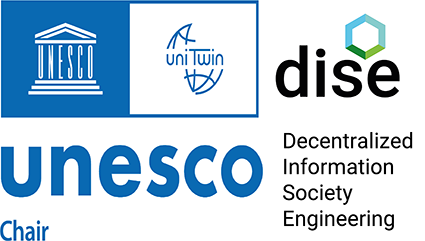2004
Wieringa, Roel; Gordijn, Jaap; Eck, Pascal
ValueFraming:APreludetoSoftwareProblemFraming Proceedings Article
In: Cox, Karl; Hall, Jon G.; Rapanotti, Lucia (Ed.): Proceedings of the 1st International Workshop on Advances and Applications of Problem Frames (IWAAPF) at ICSE 2004, pp. 75–84, IEE, 2004.
@inproceedings{WieringaPFrames2004,
title = {ValueFraming:APreludetoSoftwareProblemFraming},
author = {Roel Wieringa and Jaap Gordijn and Pascal Eck},
editor = {Karl Cox and Jon G. Hall and Lucia Rapanotti},
url = {https://dise-lab.nl/wp-content/uploads/2021/06/WieringaPFrames2004.pdf},
year = {2004},
date = {2004-01-01},
booktitle = {Proceedings of the 1st International Workshop on Advances and Applications of Problem Frames (IWAAPF) at ICSE 2004},
pages = {75–84},
publisher = {IEE},
abstract = {Software problem framing is a way to find specifications for software. Software problem frames can be used to structure the environment of a software system (the machine) and specify desired software properties in such a way that we can show that software with these properties will help achieve the required effects in the environment.
Actually framing a software problem, i.e. finding suitable problem frames of a given situation, is creative activity for which no guidelines are currently known. In this paper, we propose to use an idea exploration technique
called e3value to find software problem frames.
The e3value methodology is an approach to help business analysists solve the problem of designing a networked enterprise, defined as a set of businesses or
business units that make money by performing value exchanges over a computer network. The outcome of e3value is viewed by business managers as a solution, but it is a problem for software engineers who have to
implement this idea. In this paper we illustrate the combination of e3value with problem framing by means of a small example from real life, and discuss the research questions that come out of this.},
keywords = {},
pubstate = {published},
tppubtype = {inproceedings}
}
Software problem framing is a way to find specifications for software. Software problem frames can be used to structure the environment of a software system (the machine) and specify desired software properties in such a way that we can show that software with these properties will help achieve the required effects in the environment.
Actually framing a software problem, i.e. finding suitable problem frames of a given situation, is creative activity for which no guidelines are currently known. In this paper, we propose to use an idea exploration technique
called e3value to find software problem frames.
The e3value methodology is an approach to help business analysists solve the problem of designing a networked enterprise, defined as a set of businesses or
business units that make money by performing value exchanges over a computer network. The outcome of e3value is viewed by business managers as a solution, but it is a problem for software engineers who have to
implement this idea. In this paper we illustrate the combination of e3value with problem framing by means of a small example from real life, and discuss the research questions that come out of this.
Actually framing a software problem, i.e. finding suitable problem frames of a given situation, is creative activity for which no guidelines are currently known. In this paper, we propose to use an idea exploration technique
called e3value to find software problem frames.
The e3value methodology is an approach to help business analysists solve the problem of designing a networked enterprise, defined as a set of businesses or
business units that make money by performing value exchanges over a computer network. The outcome of e3value is viewed by business managers as a solution, but it is a problem for software engineers who have to
implement this idea. In this paper we illustrate the combination of e3value with problem framing by means of a small example from real life, and discuss the research questions that come out of this.

